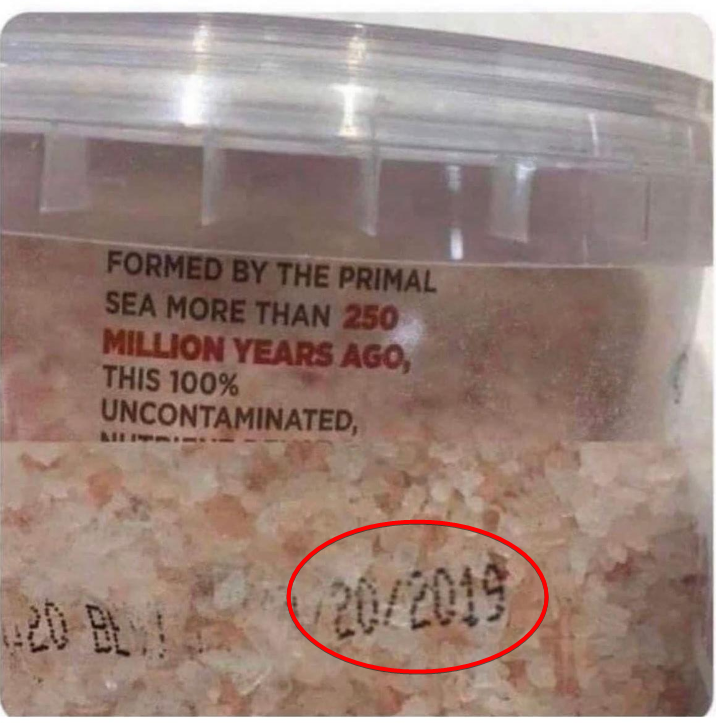this post was submitted on 09 Jun 2024
329 points (98.5% liked)
Science Memes
11004 readers
3182 users here now
Welcome to c/science_memes @ Mander.xyz!
A place for majestic STEMLORD peacocking, as well as memes about the realities of working in a lab.

Rules
- Don't throw mud. Behave like an intellectual and remember the human.
- Keep it rooted (on topic).
- No spam.
- Infographics welcome, get schooled.
This is a science community. We use the Dawkins definition of meme.
Research Committee
Other Mander Communities
Science and Research
Biology and Life Sciences
- !abiogenesis@mander.xyz
- !animal-behavior@mander.xyz
- !anthropology@mander.xyz
- !arachnology@mander.xyz
- !balconygardening@slrpnk.net
- !biodiversity@mander.xyz
- !biology@mander.xyz
- !biophysics@mander.xyz
- !botany@mander.xyz
- !ecology@mander.xyz
- !entomology@mander.xyz
- !fermentation@mander.xyz
- !herpetology@mander.xyz
- !houseplants@mander.xyz
- !medicine@mander.xyz
- !microscopy@mander.xyz
- !mycology@mander.xyz
- !nudibranchs@mander.xyz
- !nutrition@mander.xyz
- !palaeoecology@mander.xyz
- !palaeontology@mander.xyz
- !photosynthesis@mander.xyz
- !plantid@mander.xyz
- !plants@mander.xyz
- !reptiles and amphibians@mander.xyz
Physical Sciences
- !astronomy@mander.xyz
- !chemistry@mander.xyz
- !earthscience@mander.xyz
- !geography@mander.xyz
- !geospatial@mander.xyz
- !nuclear@mander.xyz
- !physics@mander.xyz
- !quantum-computing@mander.xyz
- !spectroscopy@mander.xyz
Humanities and Social Sciences
Practical and Applied Sciences
- !exercise-and sports-science@mander.xyz
- !gardening@mander.xyz
- !self sufficiency@mander.xyz
- !soilscience@slrpnk.net
- !terrariums@mander.xyz
- !timelapse@mander.xyz
Memes
Miscellaneous
founded 2 years ago
MODERATORS
you are viewing a single comment's thread
view the rest of the comments
view the rest of the comments

Well, I understand that with some years in an plastic bowl, the salt may absorb some substances and microplastics. But about Honey, what comes in glass jars? There they also put an expiration date, even though still edible honey has been found in several thousand years old Egyptian tombs.
The expiration date - unless it's a different legal definition where you are from - is not really about being edible, but just signifies the guarantee the producer gives, basically "up until this date we will guarantee this product will maintain the expected quality". In this case, I think it will be them not guaranteeing that the salt won't have drawn water from the air and clumped up or something like that.
i think what you are describing is the "best before date". the expiration date instead works as OP describes it: after the expiration the product should be tossed.
i usually see expiration dates on fish and meat. afaik honey never comes with an expiration date; the best before date is probably only relevant for the taste of the honey, not for its safety.
Oh, true, I did not realise "Best Before" exists in that way, due to English not being my first language. But yes, that makes a lot of sense.
It's required by law so they have to put something.
As weird as it sounds, this actually isn't true in general. Except on baby formula, it's not required by federal law. Some states require it and some don't, but it's more or less put there voluntarily by everyone because they don't want spoiled stuff going around with their name on it.
Youre also more likely to replace it after its "expired"
As a plastics engineer, I would be more concerned with the heavy metals in Himalayan pink salt. Also, any microplastics wouldn't be "absorbed". If anything the salt would abraid the container through shaking which could scrape the walls and grind out some small particles over time. That being said, the plastics used for these types of applications are relatively virgin and frequently don't contain any additives aside from possible colorants or glass fill or something line that.